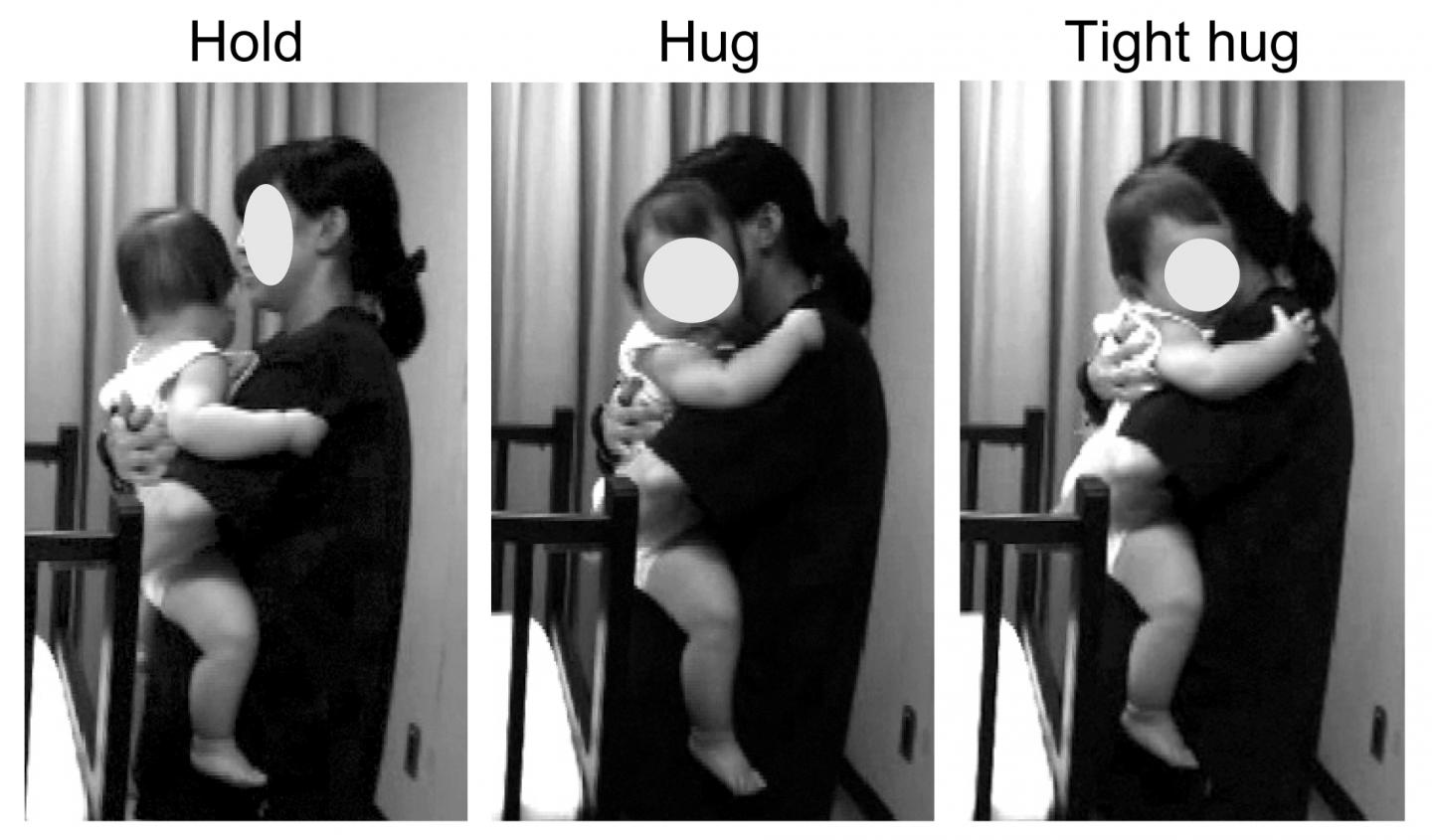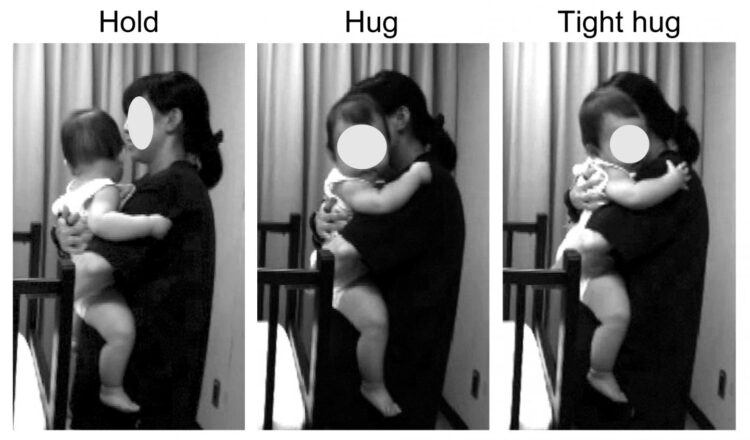
Credit: Yoshida et al./iScience
For infants as young as four months, a hug from a parent makes all the difference. A study appearing April 7 in the journal iScience examined heart rate responses in infants less than one year old during a hug and found that children as young as four months experience greater heart rate slowing during a hug than a hold–and during a hug from their parent as compared to a hug from a stranger. The researchers say that the study offers some of the first evidence that hugs play an important role in early bonding between parents and their children.
“Like most parents, we love to hug our children,” says first author Sachine Yoshida (@sachine_yoshida) of Toho University in Tokyo, Japan. “We also know that children love to be hugged by their parents. But what surprised us as scientists is how little we know about hugging.”
One question was whether a hug was really calming or whether any increase in pressure–for instance, from being held–could be soothing. To begin to explore this in the new study, Yoshida along with Hiromasa Funato (@HiromasaFunato) and their colleagues examined heart rate responses in infants less than one year during a hold, a hug, and a tight hug. They also looked at what happens when a female stranger did the hugging instead.
“The infants older than four months old showed a high increase ratio of heartbeat intervals during hugging by their parents than by female strangers,” Yoshida said. “Parents also showed a high increase ratio of heartbeats intervals by hugging their infants. We found that both infants and parents come to relax by hugging.”
The researchers report that parents and infants both showed an increase during a hug in what’s known as the R-R interval (RRI) on an electrocardiogram. The R-R interval is the time between a particular waveform that measures electrical activity of the heart. The increased time indicates a slowed heart rate.
Infants younger than four months didn’t show the same RRI increase during a hug, the researchers reported. But those young infants did show a slowed heart rate when a parent’s hand put pressure on his or her back while being held, suggesting that they didn’t make the same distinction as older infants between being held and being hugged
The researchers say that they had expected a hug would lead to obvious changes in an infant’s behavior, turning a fussy mood into a good one, perhaps. But what surprised them was that the calming effects of a hug that they observed only could be detected on infants who were neither crying nor fussy. “Due to this inconspicuous feature, we think that the experimental data indicating the relaxing effect of a parent-infant hug had been a missing piece for a while, even though there was much situational evidence,” Funato says.
“Your baby loves to be hugged and loves how you hug your baby,” Yoshida adds. “Even though infants cannot speak, they recognize their parents through various parenting methods, including hugging, after four months old at latest. We hope that knowing how your baby feels while being hugged help ease the physical and psychological workload of taking care of infants too young to speak.”
###
This work was supported by PRESTO, The Telecommunications Advancement Foundation, Naito Foundation, Meiji Yasuda Mental Health Foundation, Toho Research Project, and JSPS KAKENHI.
iScience, Yoshida et al.: “Infants show physiological responses specific to parental hugs” https://www.cell.com/iscience/fulltext/S2589-0042(20)30180-2
iScience (@iScience_CP) is an open-access journal from Cell Press that provides a platform for original research and interdisciplinary thinking in the life, physical, and earth sciences. The primary criterion for publication in iScience is a significant contribution to a relevant field combined with robust results and underlying methodology. Visit: http://www.
Media Contact
Carly Britton
[email protected]
Related Journal Article
http://dx.





